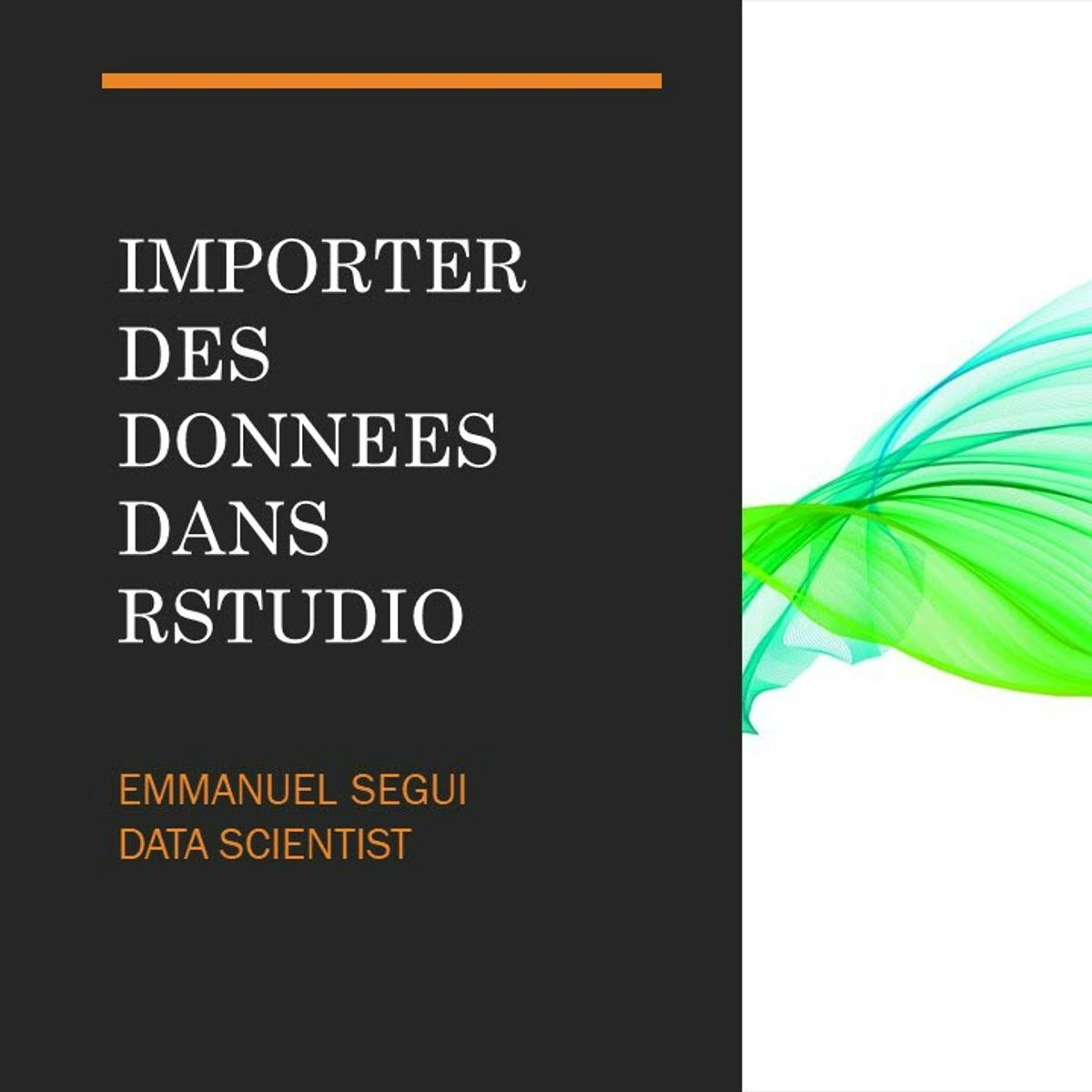
Dans ce cours d'une heure, basé sur un projet, vous apprendrez comment lire toutes sortes de données et les importer dans R, y compris des fichiers CSV, des fichiers Excel, des données provenant d'autres logiciels statistiques, du Web et de bases de données relationnelles.
Remarque : ce cours fonctionne le mieux pour les étudiants basés en Amérique du Nord. Nous nous efforçons actuellement d'apporter la même expérience dans d'autres régions.
What's inside
Syllabus
Good to know
Save this course
Reviews summary
Introductory data import course in r
Activities
Compiler vos notes, devoirs et examens
Show steps
Compiler vos notes et vos devoirs vous aidera à organiser vos connaissances et à mieux vous préparer pour les examens.
Show steps
-
Rassembler tous vos notes, devoirs et examens.
-
Organiser les documents par sujet.
-
Créer un système de classement pour faciliter la recherche.
Lire le livre "R for Data Science" de Hadley Wickham
Show steps
Ce livre vous aidera à mieux comprendre les concepts fondamentaux de R et les bonnes pratiques à suivre pour l'analyse et la visualisation de données.
View
R pour les data sciences
on Amazon
Show steps
-
Acheter ou emprunter le livre.
-
Lire les chapitres 1 à 5 pour avoir une vue d'ensemble des concepts de base de R.
-
Faire les exercices proposés dans les chapitres pour vous entraîner.
Participer à des groupes d'étude avec d'autres étudiants
Show steps
Participer à des groupes d'étude vous permettra d'échanger des connaissances avec d'autres étudiants et de renforcer votre compréhension du sujet.
Show steps
-
Rejoindre un groupe d'étude en ligne ou en personne.
-
Participer activement aux discussions et aux exercices.
Show all three activities
Compiler vos notes, devoirs et examens
Show steps
Compiler vos notes et vos devoirs vous aidera à organiser vos connaissances et à mieux vous préparer pour les examens.
Show steps
- Rassembler tous vos notes, devoirs et examens.
- Organiser les documents par sujet.
- Créer un système de classement pour faciliter la recherche.
Lire le livre "R for Data Science" de Hadley Wickham
Show steps
Ce livre vous aidera à mieux comprendre les concepts fondamentaux de R et les bonnes pratiques à suivre pour l'analyse et la visualisation de données.
View
R pour les data sciences
on Amazon
Show steps
- Acheter ou emprunter le livre.
- Lire les chapitres 1 à 5 pour avoir une vue d'ensemble des concepts de base de R.
- Faire les exercices proposés dans les chapitres pour vous entraîner.
Participer à des groupes d'étude avec d'autres étudiants
Show steps
Participer à des groupes d'étude vous permettra d'échanger des connaissances avec d'autres étudiants et de renforcer votre compréhension du sujet.
Show steps
- Rejoindre un groupe d'étude en ligne ou en personne.
- Participer activement aux discussions et aux exercices.
Career center
Data Analyst
Data Scientist
Business Intelligence Analyst
Database Administrator
Statistician
Market Researcher
Data Engineer
Software Engineer
IT Manager
Project Manager
Financial Analyst
Risk Analyst
Actuary
Epidemiologist
Human Resources Manager
Reading list
Share
Similar courses
OpenCourser helps millions of learners each year. People visit us to learn workspace skills, ace their exams, and nurture their curiosity.
Our extensive catalog contains over 50,000 courses and twice as many books. Browse by search, by topic, or even by career interests. We'll match you to the right resources quickly.
Find this site helpful? Tell a friend about us.
We're supported by our community of learners. When you purchase or subscribe to courses and programs or purchase books, we may earn a commission from our partners.
Your purchases help us maintain our catalog and keep our servers humming without ads.
Thank you for supporting OpenCourser.



